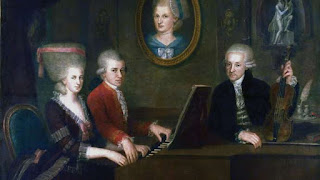ou got 9 correct out of 10.
:)
1. "Give my phone back!" means:
show gratitude
return it
throw it
2. "I'm trying to give back to my community" means:
you are trying to return something to your community
you are trying to do something to show gratitude to your community
you are trying to return a feeling to your community
3. "Going to the gym regularly has given Tina back her confidence" means:
Going to the gym has returned the feeling of confidence to Tina.
Going to the gym has made Tina grateful to have her confidence.
Tina is going to the gym because she is confident.
4. Which of these is an example of returning something to someone?
He's been giving back to his church.
He gave back his friend's book.
He got back his love of video games.
5. Which of these is an example of doing something for someone or a community in order to show gratitude for something they did for you?
Regina has given a lot back to local homeless shelters.
Regina has given the rice cooker back to her mother.
Regina has given her mother back her love of cooking.
6. Which of these is an example of returning an emotion or feeling to a person after he/she had stopped feeling it?
Signing up for art class gave me back my passion for life.
I gave back my art supplies.
I gave back to the art school for everything they had done for me.
7. "She gave me back my love of writing" means:
She returned this feeling to me.
She returned my writing tools.
She gave things to me to show gratitude for something I did for her in the past.
8. What's a common sentence that means "return it to me"?
Give back it to me!
Give back to me!
Give it back to me!
"Give back" is a transitive verb and needs an object ("it") in this case.
9. What's the name of Alex's book on phrasal verbs?
100 Practical English Phrasal Verbs
100 Ways to Learn Phrasal Verbs
100 Phrasal Verbs for Your Mom
10. What's inside 100 Practical English Phrasal Verbs?
over 900 examples
only the most current usages
20 lessons of context-based learning
(all of these)
Zur Rezeption von Franz Kafka und Samuel Beckett in Rumänien
Receptarea lui Franz Kafka şi a lui Samuel Beckett în România Abstract Teoria receptării a înregistrat în ultimii ani o dezvoltare impresionantă, astfel încăt s-au putut trasa linii generale de descriere a unei direcţii de receptare în conformitate cu anumite tipologii estetice care marchează receptarea literară la nivel de receptor cult şi instruit. Acestea sunt premisele principale de la care porneşte cercetătorul în căutarea sa de modele şi modalităţi literare de receptare. S-a vorbit astfel de patologii de receptare, de estetica personajului şi nu în ultimul rănd de o receptare critică a operei literare. Sarcina cu care se confruntă cercetătorul în demersul său este de a descoperi în ce măsură opera examinată capătă caracter normativ la nivelul unui grup de receptori care aderă la stilul, forma şi limbajul literar al autorului receptat. Franz Kafka şi Samuel Beckett se integrează în categoria scriitorilor emblematici ai modernităţii şi drept urmare am considerat că un stud...

Comments